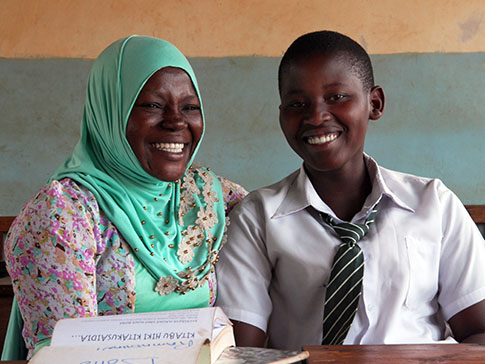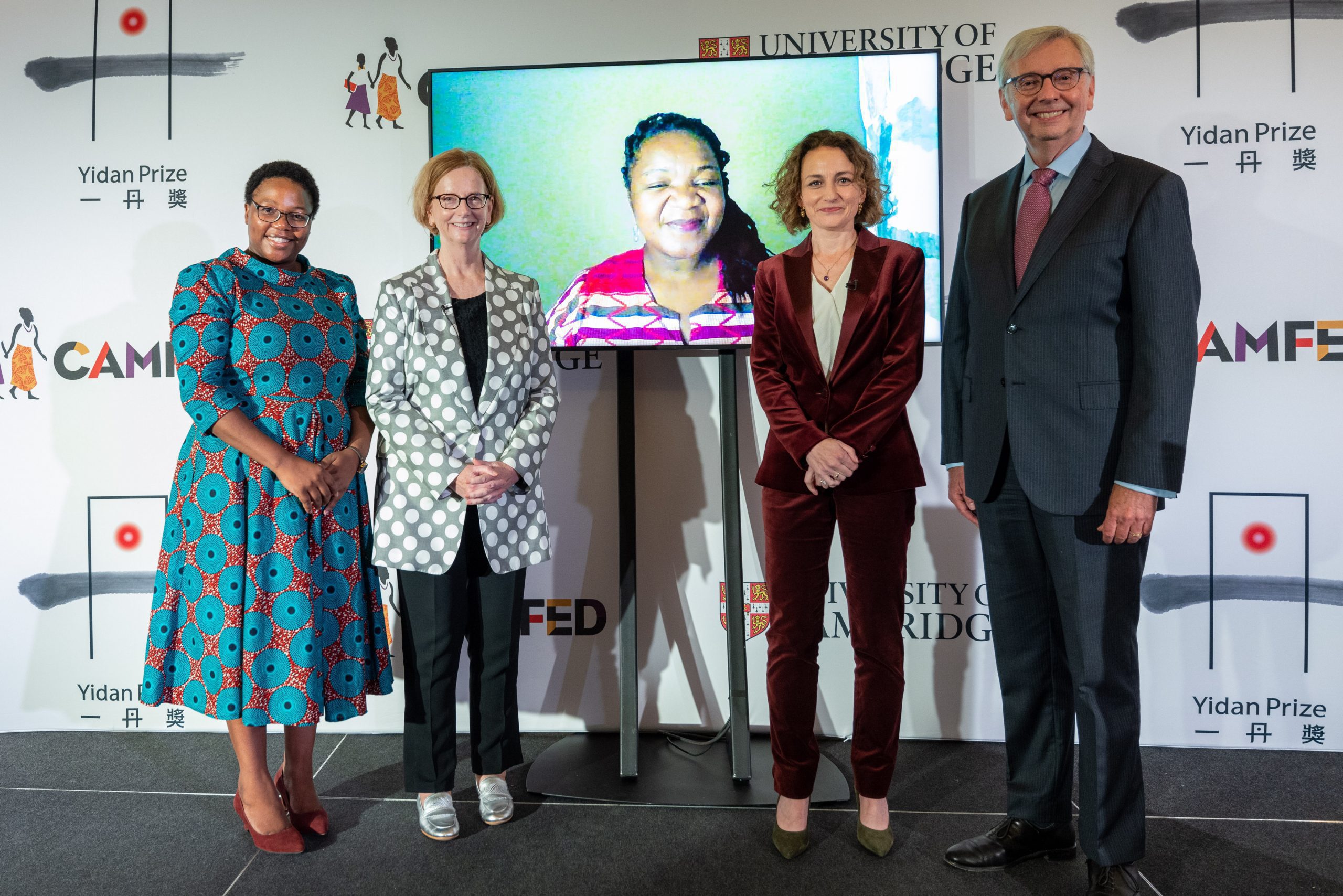Watch the Cambridge #EquitableFuture Conference - Oct. 7th
Together with the Yidan Prize Foundation and the University of Cambridge, CAMFED hosted a conference at Jesus College, Cambridge on October 7th, 2021. Relive the day as our experts showcase research and practice for ‘Creating an equitable future through education’:
A game changing research initiative
At the conference, CAMFED and the Research for Equitable Access and Learning (REAL) Centre at the University of Cambridge announced a new partnership to examine how community-led interventions that target the needs of the most marginalized children can be scaled through education systems in Tanzania and in other countries in sub-Saharan Africa.
We need to apply a gender and equity lens to all solutions we come up with. Let us prioritize investment in programs that lift up the most marginalized. This research is fundamental in demonstrating how successful models can be scaled up to support girls’ education.
Angeline Murimirwa, CAMFED Co-Executive
Supporting marginalized girls through education means looking beyond just numbers; we need to focus on breaking down the power dynamics and discrimination that they face every day. This affects not only their education opportunities, but also stifles their opportunities to thrive and build their future.
Professor Pauline Rose, Director of the REAL Centre

Young women’s leadership for girls’ education
In particular, the research will focus on the role of the Learner Guide, as a recent female school graduate who volunteers in her local school to mentor girls, support catch-up learning among marginalized children, and deliver a self-development and wellbeing curriculum. The research will also explore ways in which the Learner Guide role can contribute to shifting social norms in school communities in relation to girls’ education. It will provide valuable new evidence about how we can build towards an equitable future through education.
The research will build on the collaboration between the REAL Centre and CAMFED to date, including in the area of cost-effectiveness analysis. Based on analysis of CAMFED’s data, the REAL Centre was able to show that a focus on the education needs of the most marginalized children actually produced an uplift in the outcomes of all children: for every $100 spent per girl, per year, the program resulted in learning gains equivalent to an additional two years of education for all girls and boys at those schools.
Further highlights from the Equitable Future conference

From left to right: Alicia Herbert OBE, Fiona Mavhinga and Professor Pauline Rose participating in a panel discussion on ‘Inclusive education in the context of disruption’. Photo: Chris Loades/Yidan Prize Foundation
The Equitable Future conference — co-hosted by the Yidan Prize Foundation, the University of Cambridge (the REAL Centre at the Faculty of Education, and the Intellectual Forum at Jesus College) and CAMFED — brought together policymakers, educationalists, business leaders, foundation heads, leading academics, students and activists, with lively participation in person and online. The Hon. Julia Gillard AC, 27th Prime Minister of Australia and former Chair of the Global Partnership for Education, and Princess Laurentien, UNESCO Special Envoy on Literacy for Development, and Board Director, Yidan Prize Foundation, delivered keynote addresses.
Major themes of the event included the vulnerability of girls to exclusion from education in times of economic, climate and health crises, and the critical role of data in education development, building new bridges between the worlds of research and practice, and strengthening the evidence base for concerted global investment in education systems.

The Hon. Julia Gillard AC giving her keynote address ahead of a conversation about girls’ education globally with CAMFED Co-Executives Angeline Murimirwa and Lucy Lake. Photo: Chris Loades/Yidan Prize Foundation
Julia Gillard strongly emphasized the importance of data to bring attention to the scale of the problem. She underscored the need to examine closely the continuing ‘white savior’ narratives and power dynamics in international development, a theme picked up by Alicia Herbert OBE, Director of the Education, Gender and Equality Directorate at the Foreign, Commonwealth & Development Office, who expanded on deepening inequalities and the call to action by the Black Lives Matter movement. Both highlighted the need to recognize and respect the expertise inherent in communities, citing CAMFED’s model of grassroots leadership by young women once at the margins of society. In his summary remarks, Professor Sir Leszek Borysiewicz, former Vice Chancellor of the University of Cambridge and Board Director, Yidan Prize Foundation, called for objective data, partnerships and action. He said, “CAMFED has shown us how to build the networks to push for the education of girls. We’ve woken up to the consequences of inequalities in education globally.”
A celebration of the 2020 Yidan Prize Laureates
One of [the REAL Centre and CAMFED’s] great achievements has been to provide a sense of direction: principles and models that improve our chances of fulfilling that goal [of supporting the most marginalized children through education].
Stephen Toope OC, Vice-Chancellor of the University of Cambridge
I cannot underscore enough the power of CAMFED’s model of women’s leadership — the power of a sisterhood of 178,000 change leaders, supporting each other, contributing to more equitable policies, and addressing the structural inequalities that are keeping girls and young women from reaching their full potential.

Watch the evening speeches
Following the conference, the Yidan Prize Foundation hosted an evening celebrating CAMFED Co-Executives Lucy Lake and Angeline Murimirwa as 2020 Laureates of the Yidan Prize for Education Development at the Fitzwilliam Museum in Cambridge. In his welcoming remarks Stephen Toope OC, Vice-Chancellor of the University of Cambridge, announced the CAMFED – REAL Centre research partnership, noting its importance in particular because of the impact that COVID-19 has had on the education of children from marginalized communities. Professor Toope added that collaborations such as those between the REAL Centre and CAMFED offered “a note of hope” in the context of such challenges.
